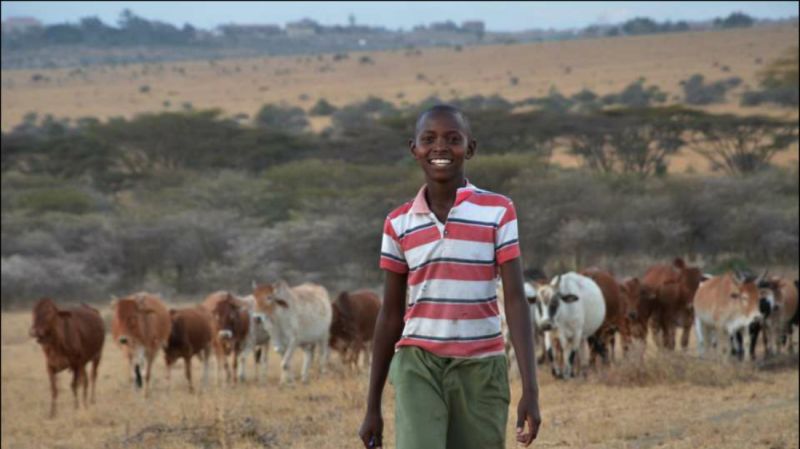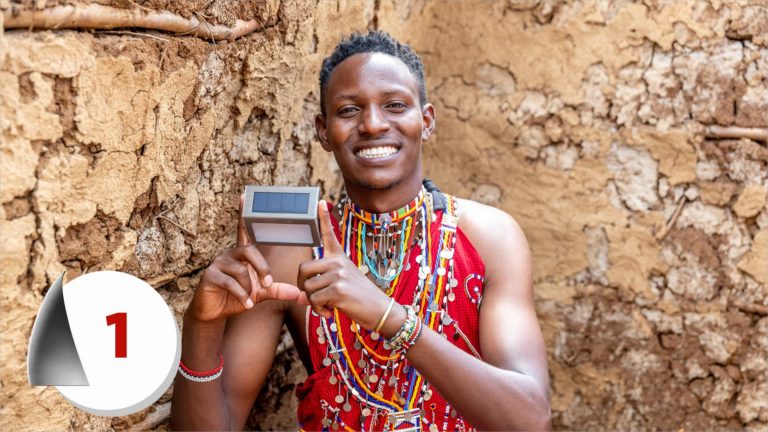Tomorrow ShapeRS’ 2023 winner is a maasai conservationist
The Young Inventors Prize celebrates solution that work towards the United Nations Sustainable Development Goals. The 2023 winner is a Maasai conservationist
Richard Turere is a young Maasai conservationist that developed a system to deter lions from attacking livestock, preventing human-wildlife conflict and helping to boost the Kenyan lion population. Richard’s system helps to preserve ecosystems and contributes to UN SDG 15 and earned him the first prize at the 2023 Young Inventors Prize.
About the Young Inventors Prize
The Young Inventors Prize celebrates solution that work towards the United Nations Sustainable development goals.
The Prize is promoted by the European Patent Office, and it’s the newest Prize, recently created to aknowledge initiatives developed by young inventors (aged 30 and under) that work towards the United Nations Sustainable development goals. A granted European patent is not a prerequisite – in that sense, The Young Inventors Prize differs from the traditional European Inventor Award categories. Besides, inventors need to be aged 30 or under at the time of the Award.
The winner is awarded with EUR 20 000. The second and third placed finalists receive EUR 10 000 and EUR 5 000 respectively.
The winning project: scare off lions with flashy invention
In Kenya, lion numbers plummeted from 15 000 to 2 500 within two decades, placing Africa’s largest land predator on a path to extinction. Poaching has taken its toll on the lion population, and a loss of habitat has led to conflict between lions and humans as the predators turn to livestock for prey.
Project rationale
Richard Turere, from the Maasai community in Kitengelaand, was responsible for protecting his family’s cattle from age nine. At one point, lions killed around nine cows a week and Turere became determined to find a solution. He noticed that lions would not approach the stables if he were there with his flashlight checking on the cattle and realised that he needed to trick the predators into thinking that he was always nearby.

Project prototyping
Turere was still a child when he began experimenting with different electrical appliances to create an LED flashing light system that deters lions from approaching and attacking animal enclosures. The invention was originally an indicator box that could only turn lights on and off, so Turere continued to refine it by programming unique light sequences to prevent lions from learning the patterns. The system primarily uses solar energy and can be combined with wind energy for cloudy conditions.
Placing the lights around an animal enclosure about 15 metres apart and using them to mimic human movement successfully scares lions away from livestock.
Local solution, global impact
In 2013, Richard Turere established the Lion Lights organisation to deploy the automated lighting system in areas where human-wildlife conflict often results in the retaliatory killing of predators. Today, his invention is used in more than 2000 homes in Kenya, as well as in Tanzania, Botswana, Namibia, Argentina and India.
The system has been shown to deter a range of wild animals including leopards, pumas, hyenas and even elephants. While lions are still listed as vulnerable, their numbers in Kenya have increased thanks to local conservation efforts and Lion Lights.
Turere’s story caught the attention of TED Talks where he spoke at age 13. You can watch the video below:
He then won a scholarship to study A-Levels at Brookhouse school and later completed a bachelor’s degree in global challenges and wildlife conservation. Turere’s success can be attributed to unwavering determination: “I want this story to inspire the young kids that they too can do something. If I did it coming from this community with no education, and no resources whatsoever, then anyone can make it. Anyone can change this world.”
Working towards UN Sustainable Development Goals
The invention helps to protect the livelihoods of farmers whose livestock provide vital sustenance and income for communities. Crucially, it also reduces the retaliatory killings of predators such as lions, contributing to UN SDG 15 (life on land), which includes protecting, restoring and promoting sustainable use of terrestrial ecosystems.
source: EPO
cover image: EPO
author: Barbara Marcotulli
Maker Faire Rome – The European Edition has been committed since its very first editions to make innovation accessible and usable to all, with the aim of not leaving anyone behind. Its blog is always updated and full of opportunities and inspiration for makers, makers, startups, SMEs and all the curious ones who wish to enrich their knowledge and expand their business, in Italy and abroad.
Follow us, subscribe to our newsletter: we promise to let just the right content for you to reach your inbox.



















































































